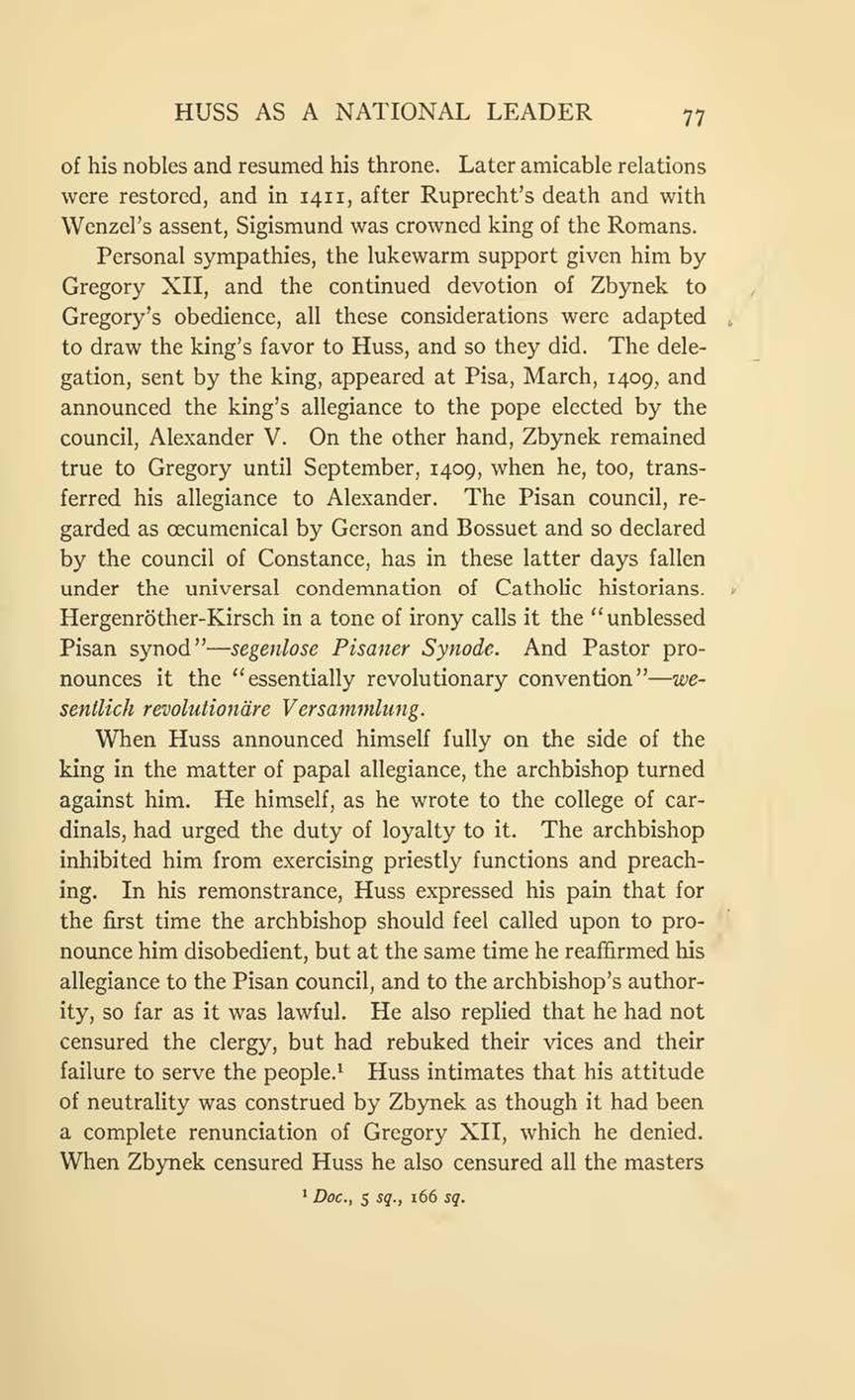of his nobles and resumed his throne. Later amicable relations were restored, and in 1411, after Ruprecht’s death and with Wenzel’s assent, Sigismund was crowned king of the Romans.
Personal sympathies, the lukewarm support given him by Gregory XII, and the continued devotion of Zbynek to Gregory’s obedience, all these considerations were adapted, to draw the king’s favor to Huss, and so they did. The delegation, sent by the king, appeared at Pisa, March, 1409, and announced the king’s allegiance to the pope elected by the council, Alexander V. On the other hand, Zbynek remained true to Gregory until September, 1409, when he, too, transferred his allegiance to Alexander. The Pisan council, regarded as œcumenical by Gerson and Bossuet and so declared by the council of Constance, has in these latter days fallen under the universal condemnation of Catholic historians. Hergenröther-Kirsch in a tone of irony calls it the “unblessed Pisan synod”—segenlose Pisaner Synode. And Pastor pronounces it the “essentially revolutionary convention”—wesentlich revolutionäre Versammlung.
When Huss announced himself fully on the side of the king in the matter of papal allegiance, the archbishop turned against him. He himself, as he wrote to the college of cardinals, had urged the duty of loyalty to it. The archbishop inhibited him from exercising priestly functions and preaching. In his remonstrance, Huss expressed his pain that for the first time the archbishop should feel called upon to pronounce him disobedient, but at the same time he reaffirmed his allegiance to the Pisan council, and to the archbishop’s authority, so far as it was lawful. He also replied that he had not censured the clergy, but had rebuked their vices and their failure to serve the people.[1] Huss intimates that his attitude of neutrality was construed by Zbynek as though it had been a complete renunciation of Gregory XII, which he denied. When Zbynek censured Huss he also censured all the masters
- ↑ Doc., 5 sq., 166 sq.
